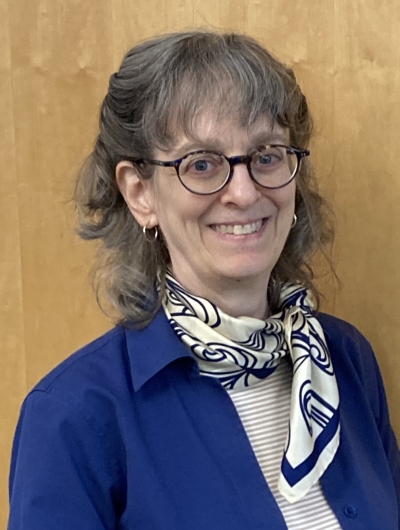People

Kim Worley, PhD
Kim C. Worley, Ph.D.
Professor and Vice Chair for Research Affairs - Basic and Translational, Department of Molecular and Human Genetics, Faculty Member, Human Genome Sequencing Center
B.S., Massachusetts Institute of Technology
Ph.D., Baylor College of Medicine
Postdoc, Baylor College of Medicine
Research Interests
My research interests center on building, annotating, understanding and making use of genomes. I have coordinated research in large multi-institutional international research consortia, including analysis and publication of research results for the Human Genome Project, Human Microbiome Project, and comparative genomics projects for over 40 animal species. For these projects, I had a role in creating genome representations through de novo genome assembly, improving genome representation through targeted sequencing and structural variation analysis, and contributing to the understanding of genome function through analysis, annotation and computational methods. The number of sequenced human genomes has increased, and genomes representative of diverse humans have become available, but the challenge of interpreting the impact of personal variation and applying this knowledge in a way that serves individual patients and improves the practice of medicine remains an analytical frontier.
Ongoing research interests include:
All of Us: As a part of the All of Us Evenings with Genetics Research Education Program, Dr. Worley leads the data science training for researchers seeking to study the All of Us data. Their research projects include gene-disease association studies using the extensive whole genome sequence, clinical records, environmental exposure and survey data.
Alzheimer’s Disease Sequencing Project Consortium (ADSP): Dr. Worley works with Drs. Olivier Lichtarge, Ismael Al-Ramahi, Juan Botas and Joanna Jankowsky on projects to assess the functional impact of variants in the ADSP data.
ClinGen (https://www.clinicalgenome.org): Dr. Worley coordinates the variant curation expert panel for X-linked inherited retinal diseases. This project is defining specifications for determining pathogenicity and curating variants in genes that cause blinding eye diseases, several of which are targets for gene therapies.
RE-JOIN (Restoring Joint Health and Function to Reduce Pain): This consortium is mapping the network of sensory nerves that connect to the temporomandibular (TMJ) and the knee joints to understand how the types and patterns of sensory neuron networks in joints change with disease and aging. Dr. Worley works with the administrative team and the ‘omics working group enabling cross-consortium communication.
Undiagnosed Diseases Network / Undiagnosed Diseases Center: Dr. Worley leads the sequence analysis and variant interpretation group. The team is utilizing genome sequencing and other assays to identify causal genomic variants and diagnose undiagnosed patients.
Warren Alpert Foundation funded Advanced Research Training for Genetic Counselors: Dr. Worley, Dr. Elsea, and Mr. Riconda lead this research training program to prepare genetic counselors to lead biomedical research programs.
Other strategic initiatives: Dr. Worley also works on strategic projects related to genomic data science at BCM including the Consultagene platform (https://consultagene.org/), researcher access to genomic data and new sequencing technology implementation.
Selected Publications
International Human Genome Sequencing Consortium (2001). Initial sequencing and analysis of the human genome. Nature. 409: 860-921.
Gibbs RA, Weinstock GM, Metzker ML, Muzny DM, Sodergren EJ, (...), Worley KC, (...); Rat Genome Sequencing Project Consortium (2004). Genome sequence of the Brown Norway rat yields insights into mammalian evolution. Nature. 428: 493-521.
Honeybee Genome Sequencing Consortium (2006). Insights into social insects from the genome of the honeybee Apis mellifera. Nature. 443: 931-49.
Margulies EH, Cooper GM, Asimenos G, (...), Worley KC, (...), Green ED, Sidow A (2007). Analyses of deep mammalian sequence alignments and constraint predictions for 1% of the human genome. Genome Res. 7: 760-74.
Bovine Genome Sequencing and Analysis Consortium, Elsik CG*, Tellam RL*, Worley KC* (2009). The genome sequence of taurine cattle: a window to ruminant biology and evolution. Science. 324: 522-8. *corresponding authors.
Human Microbiome Project Consortium (2012). Structure, function and diversity of the healthy human microbiome. Nature. 486: 207-14.
English AC, Richards S, Han Y, Wang M, Vee V, Qu J, Qin X, Muzny DM, Reid JG, Worley KC, Gibbs RA (2012). Mind the gap: upgrading genomes with Pacific Biosciences RS long-read sequencing technology. PLoS One. 7: e47768.
Bradnam KR, Fass JN, (...), Worley KC, Yin S, Yiu SM, Yuan J, Zhang G, Zhang H, Zhou S, Korf IF (2013). Assemblathon 2: evaluating de novo methods of genome assembly in three vertebrate species. Gigascience. 2: 10.
Rogers J, Raveendran M, Harris RA, Mailund T, Leppälä K, (...), Zinner D, Roos C, Jolly CJ, Gibbs RA, Worley KC; Baboon Genome Analysis Consortium (2019). The comparative genomics and complex population history of Papio baboons. Sci Adv. 5: eaau6947.
Vanderpool D, Minh BQ, (…), Gibbs RA, Worley KC, Rogers J, Hahn MW (2020). Primate phylogenomics uncovers multiple rapid radiations and ancient interspecific introgression. PLoS Biol. 18: e3000954.
Davenport KM, Bickhart DM, Worley K, Murali SC, Salavati M, Clark EL, Cockett NE, Heaton MP, Smith TPL, Murdoch BM, Rosen BD (2022). An improved ovine reference genome assembly to facilitate in-depth functional annotation of the sheep genome. Gigascience. 11.
Lay E, Azamian MS, Denfield SW, Dreyer W, Spinner JA, Kearney D, Zhang L, Worley KC, Bi W, Lalani SR (2022). LMOD2-related dilated cardiomyopathy presenting in late infancy. Am J Med Genet A. 188: 1858-62.